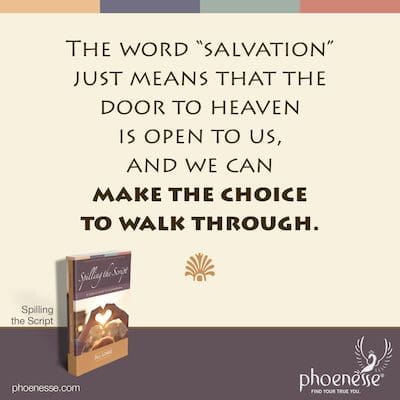
There are three main ways we can learn from Jesus Christ. The first is to follow his teachings as taught in the Bible; many explanations of Jesus’ teachings are provided in Bible Me This: Releasing the Riddles of Holy Scripture. The second is to look to his life as a teaching. For example, in working with the Stations of the Cross, we can experience how the steps on our personal journey mirror the final path of Jesus Christ*.
Jesus is Betrayed
We all have experiences of being hurt by others and situations in life. And we are disillusioned by this. We realize that life will never be the utopia were fantasizing. That life is impermanent, loss is inevitable, and others are fallible.
Jesus is Condemned to Die
Every childhood holds experiences that feel like life or death. Our egos struggle to reign supreme; we come to realize the limits of our humanity and fully accept the state of our development at this point.
Jesus Carries his Cross
We begin the journey of purification compassionately and honestly accepting and facing our Lower Self, and challenging the truth of our images. We stumble along the way, but each failure and “beautiful problem” becomes a steppingstone for growing on the path. Next we give up the idea that anyone else is going to do it for us, and we embrace a deeper sense of self-responsibility. As we meet our deeper negative intention to stay separate, humility deepens. And we see that others can help us to carry our burdens, if we let them.
Jesus is Nailed to the Cross
We become stripped bare of our defenses and we surrender to our vulnerability. We fully and finally experience the pain of our separation from God, from ourselves and from others. Then we become willing to wake up to the truth about our illusions.
Jesus is Resurrected
There is a period of waiting between death and rebirth. We patiently allow God’s will to guide us, staying in not knowing—without expectation—until we awaken and a new awareness is born in us.
*From Resurrecting Jesus within the Pathwork: Footsteps on the Path to Waking Up, led by Jill Loree and Beth Hedquist at Pathwork Members’ Weekend & Jamboree, Sevenoaks Retreat Center, August 2014.
Let’s look more closely at the step of betrayal. The Guide teaches that betrayal arises from an image that affects everyone, which he calls a mass image. This mass image comes from our blend of imperfection and desire for perfection. In short, we each have a demand to be special and have others agree with us in order to make our inferiority feeling vanish. This goes deeper than pride.
The duality is: rebel against what others think or say versus pleading for admiration. We often do both at the same time. The truth is that we can’t please the whole world and be true to ourselves and our life plan.
When someone betrays us, we feel hurt and disappointed, especially since we were loyal to them. The offender, however, claims that we have betrayed them. So they accuse us of doing the same thing that caused us pain. What hurts us the most is the accusation that we were being disloyal or dishonest.
The truth is that no mishap occurs that we have not caused in some way. Our unconscious beliefs are stronger than the conscious ones, so they drive what manifests. Our part may be hard to detect because our actions were correct. The hidden piece is that we desire an elevated position in the world’s eyes, to convince ourselves that our inferiority feelings are unjustified—or we will die.
The truth is that our emotional survival depends only on our own opinion of ourselves. The more we cater to the opinions of others, the less we think of ourselves. This is a vicious circle. The way out involves uncovering our hidden desire for specialness, and then being willing to “hang on our cross,” feeling the pain of letting this go.
Learn more in Living Light, Chapter 18: THE MASS IMAGE OF SELF-IMPORTANCE | The Folly of Needing to Feel Special.
The third way, which is by far the most important, is to learn the greater story about why Jesus came here to Earth. For starters, it is important to recognize that we are made of the same stuff as Jesus. It is called the Christ, or Christ consciousness.
“The truth is, my friends, whether you want to believe it now or not, that Jesus, the man, was the incarnation of the Christ. And this spirit is the highest and most exalted of all created beings.
He is the first direct and inborn creation of God. His substance is the same as the substance of God. All of you possess some of this substance, which I call the Higher Self or the divine spark. It has to come out gradually through spiritual development.
But no other created being has this substance in quite the same degree as the Christ. And there is the difference.”
– Pathwork Lecture #19

As with the word “Jesus,” we often react strongly to the word “salvation.” In short, it just means that the door to heaven is open to us, and we can make the choice to walk through.
“Salvation means, among other things, Christ’s endless forgiveness and acceptance. It means that you can always find your way to God, no matter what you have done, and no matter what your Lower Self still wishes to do. The door is always open, you are never, never locked out.
All you have to do is knock. Ask for the bread of God’s mercy, love, forgiveness and personal help in all ways, and you shall not receive a stone.”
– Pathwork Lecture #258

If we think of our sins as being the ways we have missed the mark, then perhaps we see that it is going to be our job to right our wrongs. There are three paradoxical aspects to this:
- Only we ourselves can effect our salvation. It is our responsibility.
- We cannot possibly do it alone. We need the help of others who share the journey with us, who may often see what we do not see.
- Without God—without the personal assistance of the personal aspect of God—the undertaking is too vast for us to accomplish.
So this is our work, and we need help to do it. But no one, including Jesus Christ, can or should do this for us.
“My friends, if you study all the Scriptures from this point of view, you will get an entirely different understanding of them. I am quite sure that the reason for the life and death of Christ will now make sense to you.
There would not be any sense in Christ dying on the cross for sins others have committed. If you have committed a sin, you yourself have to straighten it out and no one else can or should do it for you. If someone else were to do it for you, you would not gain purification. You would not receive the strength through the process of self-purification, which alone will protect you from committing sins again.
As long as the evil root is not torn out, it must again produce impure fruit. Only you can tear out the roots of your evil. Therefore, that was not the reason Christ suffered and died.”
– Pathwork Lecture #22
In the story of the Fall, the Guide explains how we, through our free will, made the choice to experience the negative aspect of divine qualities. During the ensuing Fall, our souls split, and this split is what we transfer onto our parents so that we can see it and thereby heal it.
“This is the way Christ has opened the door. You may now understand why it is said that Christ saved you from your sins. This is accurate only in the sense that your great sin of falling, of not remaining faithful to God, and of becoming at one time part of the world of darkness does not have as a consequence eternal exclusion from the divine worlds.
From this Christ has indeed saved you, and for this you certainly have all the reason in the world to be grateful to Him. Through Him you now have the possibility by your own efforts and development to cross the threshold.
In that sense, it is correct to say that Christ died for your sins. However, the interpretation that Christ died for all your sins and all your faults is very wrong.”
– Pathwork Lecture #22

This story, as told more fully in Holy Moly: The Story of Duality, Darkness and a Daring Rescue, reveals how the journey of our souls has taken us into the realm of Lucifer, from which we now desire to leave. Until we make the decision for God though, we will remain under Lucifer’s dominion, returning to spheres of darkness when we sleep and when we die.
Opening to the reality of Christ and this work of transformation is the key to opening the door that leads to heaven. We’ve all been through hell already. The question is, for how long are we willing to keep going back?
“The light I bring is always the light of Christ. He has said he is the truth and he is the way and he is life. In his light you find the way to truth in the smallest and largest issues, in personal and impersonal issues.
This way leads to the love of the Creator who has given eternal life. Eternal life can be found only in truth. The way to the truth leads through the mazes of the dark areas in your own soul; through encountering the temptation to remain in them and savor their passing gratification; through the deliberate overcoming of this temptation.
The great Christ light is the overpowering love of the Creator, of creation, of all that is. Be blessed. Choose this way.”
– Pathwork Lecture #248
In walking this path, there is nothing we must believe. But because Jesus is the Christ and this way leads to truth, eventually we must come to know this truth, and to therefore believe. It cannot be any other way than this. And so we can see that many Christian religions have taught truths mixed with some misunderstanding. They simply haven’t been holding the whole truth.
Return to Spilling the Script Contents




